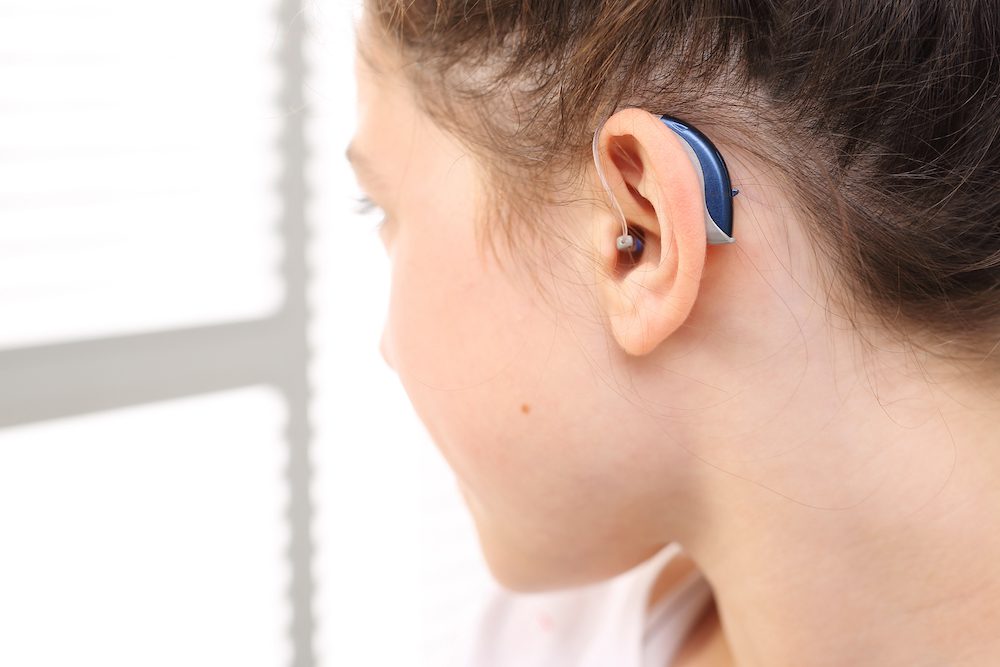
There are many people out there who are experiencing hearing loss – and who may have been experiencing it for some time – but who have put off consulting an audiologist as a result of the perceived stigma of wearing a hearing aid.
Over the years, some people have associated hearing aids solely with old age, while others have been put off getting a hearing aid due to the designs and aesthetic features of older general hearing aids in particular.
Unfortunately, hearing loss affects millions of people worldwide. 30 million individuals in the US alone – with apparently only 15% of those individuals having ever worn a hearing aid.
What’s more, a 2015 report from the WHO suggests that the youth are experiencing hearing loss to a scale never seen before, with a variety of different factors potentially playing into this – ranging from the regular use of headphones, to loud concerts and festivals. According to the WHO forecast, these factors are set to cause over 1.1 billion teenagers to develop permanent hearing damage.
When you consider the various issues that people can end up experiencing as a result of hearing loss – including, for example, the fact that untreated hearing loss can contribute to memory loss – hearing aids should be far more widely utilized than they currently are.
Fortunately, shifts in public perception, combined with new technological developments, are helping to cast hearing aids in a new light, and to encourage more and more individuals who need them to acquire them, just as they would with eye-glasses.
Here Are Some Reasons to Wear Hearing Aids if You Need Them
If you are experiencing hearing loss, there are many compelling reasons to consult with an audiologist and to get a set of hearing aids. Some of these reasons are quite obvious and straightforward, whereas others may prove to be a bit more surprising.
Here are some good reasons to wear hearing aids if you need them:
- You will find it much easier to follow conversations and so will be less likely to find social events stressful, or to feel compelled to avoid socializing
- You will be able to decrease the symptoms of tinnitus
- You will be at a significantly reduced risk of memory loss, and may even be able to reduce memory loss, as untreated hearing loss contributes to memory loss via different mechanisms
- You will be less stressed and vigilant on a daily basis
- You won’t need to turn the volume up as much when listening to music or watching TV
Were you surprised to see the point about memory loss in that list?
As surprising as it may seem at first glance, research seems to clearly link untreated hearing loss with memory loss and various forms of cognitive decline, even including conditions such as Alzheimer’s disease.
There appear to be a number of different reasons why this might happen, ranging from areas of the brain not receiving enough stimulation without proper auditory cues, to heightened stress as a result of hearing difficulties, and even reduced social interaction and the associated depression that tends to go along with this.
Hearing aids appear able to reverse much of the cognitive decline that’s associated with hearing loss, while simultaneously reducing your baseline stress levels, and helping you to experience renewed confidence and wellbeing.
Modern Innovations in Hearing Aids
The hearing aids of the past – which many people may have viewed as cumbersome, and may have associated with their grandparents – have now been well and truly superseded by innovations in both the technology and the design of modern hearing aids.
In addition to hearing aids now coming in a variety of different forms – with many of them being sleek and streamlined to the point of being nearly invisible – modern hearing aids are now also better at magnifying the sounds you want magnified while filtering out others.
What’s more, modern hearing aids are becoming more and more well-integrated with the range of digital technologies that play an ever-more important role in the lives of large numbers of people, on an everyday basis.
Many hearing aids now have Bluetooth functionality, for example, and can pair with Bluetooth-enabled devices, ranging from smartphones, to TVs, tablets, and more. With this Bluetooth functionality, your hearing aids can double up as wireless headphones for enjoying catchy music or a compelling audiobook on the go. If you want to learn more about your hearing loss treatment options, give the professionals at by The Hearing Doctors at (630) 315-2899. We’ll be happy to work with you to find the right solution for your particular needs and preferences.



